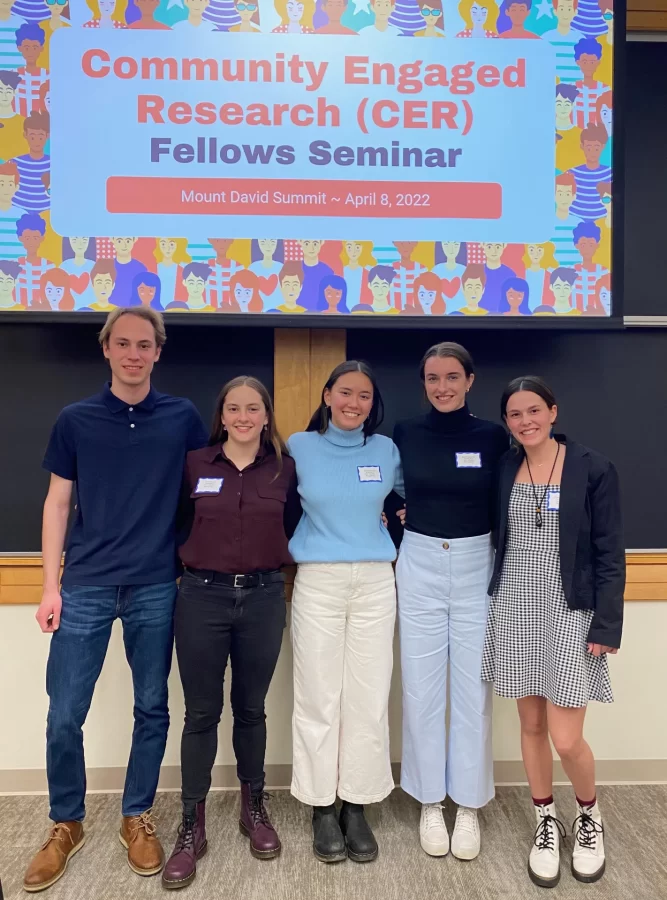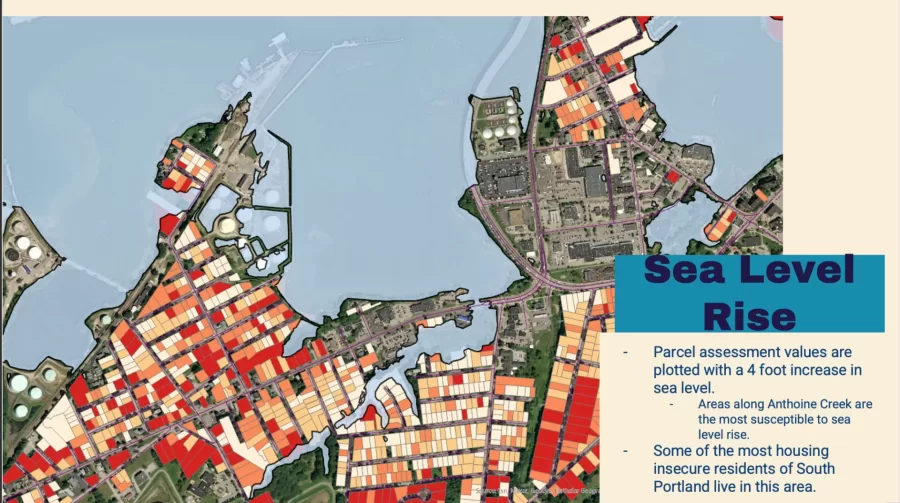Collaborating for the Common Good
Each year during the Winter semester at Bates, the Harward Center hosts the Community-Engaged Research Fellowship – a program that provides funding, mentoring, and peer reflection for student projects that engage public needs through significant academic research. Participants are typically seniors who are working on a year-long Honors Thesis or a Winter semester thesis or capstone project under the guidance of a faculty member in their major field of study. Sometimes a student develops a research question based on prior work they’ve done with a community agency. In other cases, the student’s research might tie in with questions a faculty member is exploring in the community, or it might be prompted by a request from a particular community partner. Ideally, the sustained attention and detailed analysis that an individual student can provide through a focused semester or year-long project results in a product or outcome of genuine use to the community partner.
This year’s five participants in the Fellowship met together, along with Harward Center mentors Sam Boss and Darby Ray, every other week during the semester for a shared meal and conversation about their community-engaged work and about the distinctive values and aims of community-engaged research. They recently presented their projects at the college’s annual Mount David Summit research symposium in a lively session entitled, “Research and the Public Good: Multidisciplinary Explorations.” Not only did each student present their own project, but they also worked as a team to delve into the vital importance and multiple dimensions of collaboration for community-engaged research. Each student’s work sought to address a community question or need.
For her project, Mary Corcoran of Brookline, MA studied the implementation of antiracist restorative justice practices at Lewiston Middle School. After presenting her work at Bates, she presented it at Harvard’s annual Scholarship and Social Justice Conference via this virtual poster.
Hart Rorick, an Environmental Studies major from Charlotte, NC, deployed his GIS skills to create maps for an “equity atlas” being created by the City of South Portland in their efforts to understand and support urban climate resilience in the face of sea level rise. Tess Hick of Minneapolis, MN used her year-long honors thesis to develop and implement a research-based math curriculum at Lewiston Middle School that invited students to learn about different voting systems, marshal their math skills in the process, and eventually practice engaged citizenship by selecting the voting system the school will use next year in its student government elections. Also focusing on math, Lauren Berube from Auburn, ME created curricular interventions designed to increase students’ motivation for and engagement in math learning–interventions she hopes to use herself as a teacher. Finally, Paige Sonoda of Rockville, MD focused her qualitative research project on the question of how community storytelling, a method within Liberation Psychology, can facilitate positive socioemotional outcomes such as belonging and empowerment among multiracial Asian Americans. Needless to say, we are extremely proud of this year’s Community-Engaged Research Fellows!

